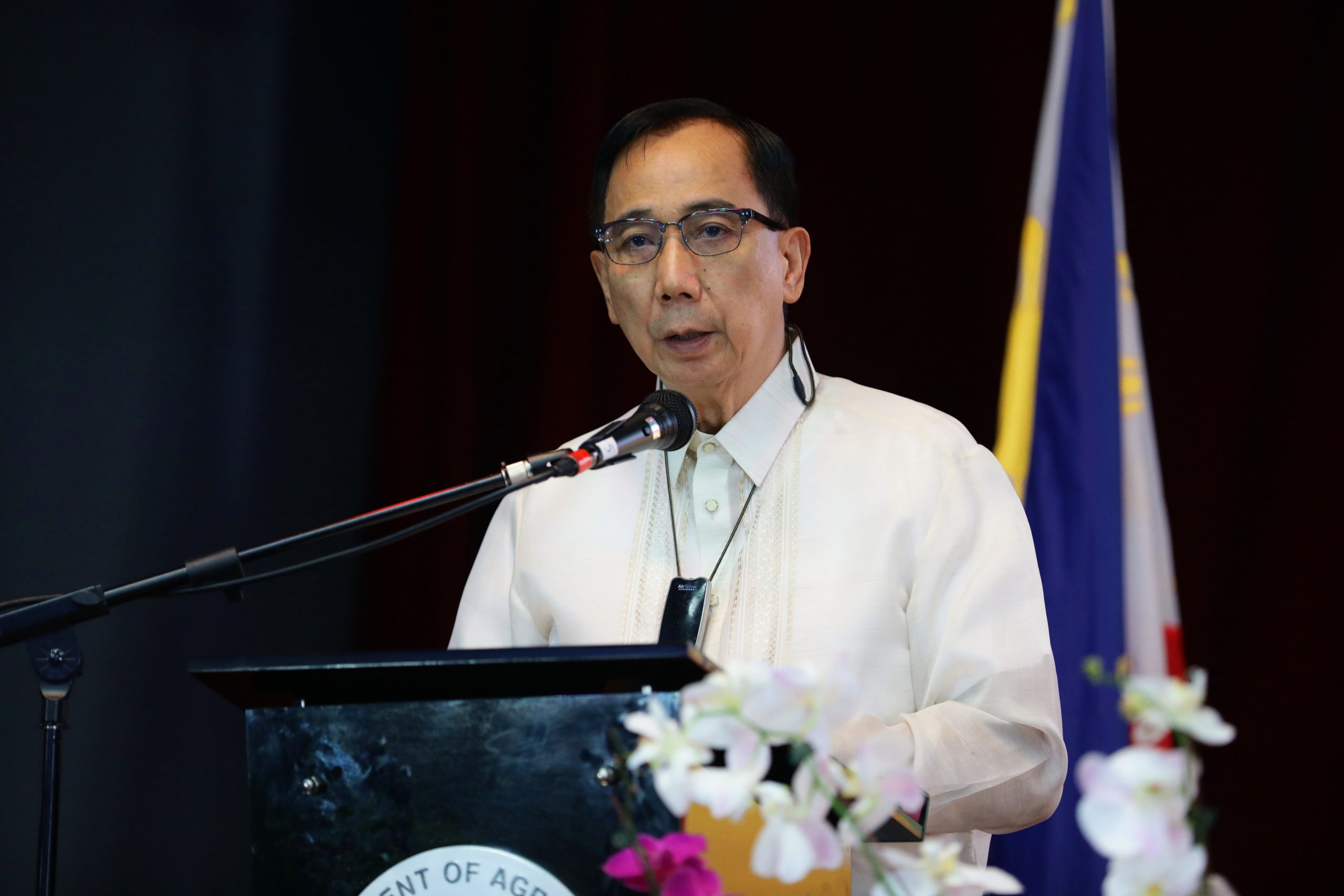
A pathway towards meeting the Sustainable Development Goals (SDGs) by 2030 can only be done if there is a national consensus and unity among the people, said Agriculture Secretary William Dar, as he opened the two-day National Dialogue for Food Systems, on July 12, 2021.
The dialogue will form the basis for the country’s renewed commitment when the United Nations (UN) conducts the UN Food Systems Summit (UNFSS), in New York, in September this year, at the sidelines of the annual UN General Assembly.
“Our national strategies have already been laid out to attain a food- and nutrition-secure Philippines, but this could be successfully done if there is unity among the people, and if all actors — both state and non-state — will agree with it,” Secretary Dar said.
For the Philippines, he directed that emphasis will be on sustainable market-oriented development in agriculture, higher levels of farm productivity and incomes, and food security for all—consistent with the Department of Agriculture’s (DA) food security framework and “OneDA Reform Agenda.”
The Philippine dialogue will address the five action tracks that will be tackled in the September summit, namely:
- Ensure access to safe and nutritious food for all;
- Shift to sustainable consumption patterns;
- Boost nature-positive production;
- Advance equitable livelihoods; and
- Build resilience to vulnerabilities, shocks and stress.
The action tracks came as a result of year-long consultations and dialogues that the DA conducted with various stakeholders and prescriptive interventions that have been identified and put into place.
While the lynchpin of meeting the 17 SDGs is based on sustainable, inclusive, and equitable food systems, Secretary Dar emphasized that the task of doing this is not the responsibility of the DA alone, but also involves other concerned government agencies, the private sector, civil society organizations, and the general public.
“Rather than looking at it from a ‘whole-of-government approach,’ we would prefer that this task is seen as a whole-of-nation approach,” the DA chief said.
“We cannot exclude other actors in this process. We have to constantly listen to them and dialogue with them in order to develop a national consensus,” he added, during the dialogue that was attended physically and virtually by more than 1,000 agri-fishery stakeholders, including members of the Diplomatic Corps and top UN officials, led by Guztavo Gonzalez, UN resident coordinator in the Philippines.
“We congratulate Secretary Dar, as the national convenor of this National Food System Dialogue, and his talented, dynamic team, because I know that this process was initiated just a few months ago and today is a reality,” said Gonzalez, noting that the Philippines is already laying a strong foundation in pursuit of the five action tracks of the UNFSS.
He said the Philippines’ Department of Agriculture is adopting “new thinking for agriculture” to change mindset and introduce new durable approaches. These include farm consolidation to promote economies of scale, increasing youth participation in agriculture, facilitating adoption of new and modern technologies, enhancing climate-smart and promoting digital agriculture, encouraging more investments in provincial agriculture and fisheries, and updating commodity industry roadmaps.
Further, Gonzalez said the Duterte administration’s work, particularly of the Inter-agency Task Force on Zero Hunger has enhanced partnerships against hunger and poverty, focusing on the strengthening of community procurement by providing support from empowering and consolidating agricultural production to providing market opportunities for nutritious food by linking them to government institutions such as day-care centers, schools and hospitals.
He also commended the efforts of Philippine legislators to address issues such as healthy diet and obesity, and ensuring the quality of food production.
In all, Gonzalez said, “that actions, more than ever, need to be holistic, multi-dimensional, transformative, and ambitious — not just to recover from COVID-19, but to regain ground lost on the sustainable development goals.”
“I would like to reassure you of the continued support of the whole United Nations country team in the Philippines for the country’s food systems and other development priorities, as we actively implement the socio-economic and peace-building framework for COVID-19 recovery for the Philippines. You know, the UN has just finalized the update of the cooperation framework with the Philippines, and we are quite proud that the food system is at the heart of this framework,” he concluded. ### (DA StratComms)













